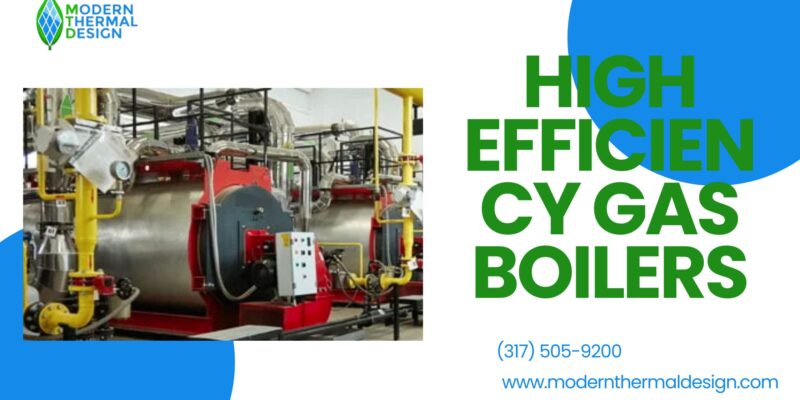
For many homes and companies, heating is a major expense, particularly in the winter months. Due to their high energy consumption, conventional heating equipment doubles utility costs. Here, gas boilers offer a modern solution to this problem by optimizing the usage of fuel, reducing energy waste, and cutting down the cost of heating.
1. Using Condensing Technology to Capture More Heat
This is one of the primary characteristics that set apart the High-Efficiency Gas Boilers from conventional ones. Traditional heaters waste energy by letting a large quantity of heat escape through the exhaust or flue. These Condensing boilers are made to trap heat before it escapes ultimately saving out-of-pocket expenditure as well as the energy which can get wasted. For the water vapor in the exhaust fumes to condense into liquid, the gases must be cooled to a certain temperature.
2. Designs for Heat Exchangers
Since it transmits heat from the combustion gases to the water that circulates through Air to Water Systems, the heat exchanger is an essential part of any boiler. Modern heat exchanger designs are used in high-efficiency boilers to optimize heat transmission and reduce energy losses. These heat exchangers are frequently made of materials that transport heat very well. Multiple heat exchanger surfaces are frequently used in the design to increase the amount of heat that the water can absorb.
3. Zoning capabilities and smart thermostats
To further increase energy savings, high-efficiency heaters can be connected to zoning and smart thermostats. With the help of smart thermostats, users may remotely control temperature settings, design heating schedules, and even modify heating according to occupancy patterns. As a result, less energy is wasted as the boiler only operates when and where heat is required, judicially. Larger properties benefit greatly from zoning systems since they enable separate heating of different parts of a building. To avoid wasting energy heating idle spaces, the boiler only directs heat to occupied rooms or zones.
4. Reduced Operating Temperatures
In order to make sure that there is enough heat accessible throughout the system, traditional heaters run at higher temperatures. On the other hand, these boilers are more efficient as they are made to function well at lower temperatures. High-efficiency boilers can sustain condensing mode for extended periods of time by operating at lower temperatures, which guarantees the consistent recovery of the latent heat of the exhaust gases.
5. Reduced Negative Environmental Impact and Carbon Footprint
High-efficiency heaters provide major environmental advantages in addition to their main goal of lowering energy expenses. These boilers produce less greenhouse emissions as they consume less fuel to provide the same quantity of heat. Cutting back on energy use directly reduces the contribution towards the carbon footprint done by a household or a factory thus helping in the fight against climate change. Businesses can show their dedication to sustainability by implementing high-efficiency heaters. In addition to saving money, many businesses are exploring greener techniques to fulfill their corporate social responsibility obligations.
6. Long-Term Economic Benefit
Compared to conventional models, heaters are usually more expensive, but the long-term energy bill reductions make the purchase worth it. Lower monthly electric expenses as a result of less energy use eventually yield a return on investment. Many times, the extra investment can be paid for in a few years by energy savings, after which businesses or homes continue to benefit from lower costs.
Furthermore, because of their sophisticated parts and reduced operating stress, high-efficiency boilers typically have longer lifespans. This results in further long-term financial benefits by lowering the need for regular replacements.
In summary
With the use of cutting-edge technology like modulating burners, condensing heat recovery, and smart controls, high-efficiency heaters offer a practical way to lower heating expenses and energy consumption. These characteristics enable less energy loss, ideal heat transport, and accurate temperature control. High-efficiency boilers are a wise choice for both businesses and homeowners because of the long-term financial and environmental advantages, even though the initial expenditure may be more.










